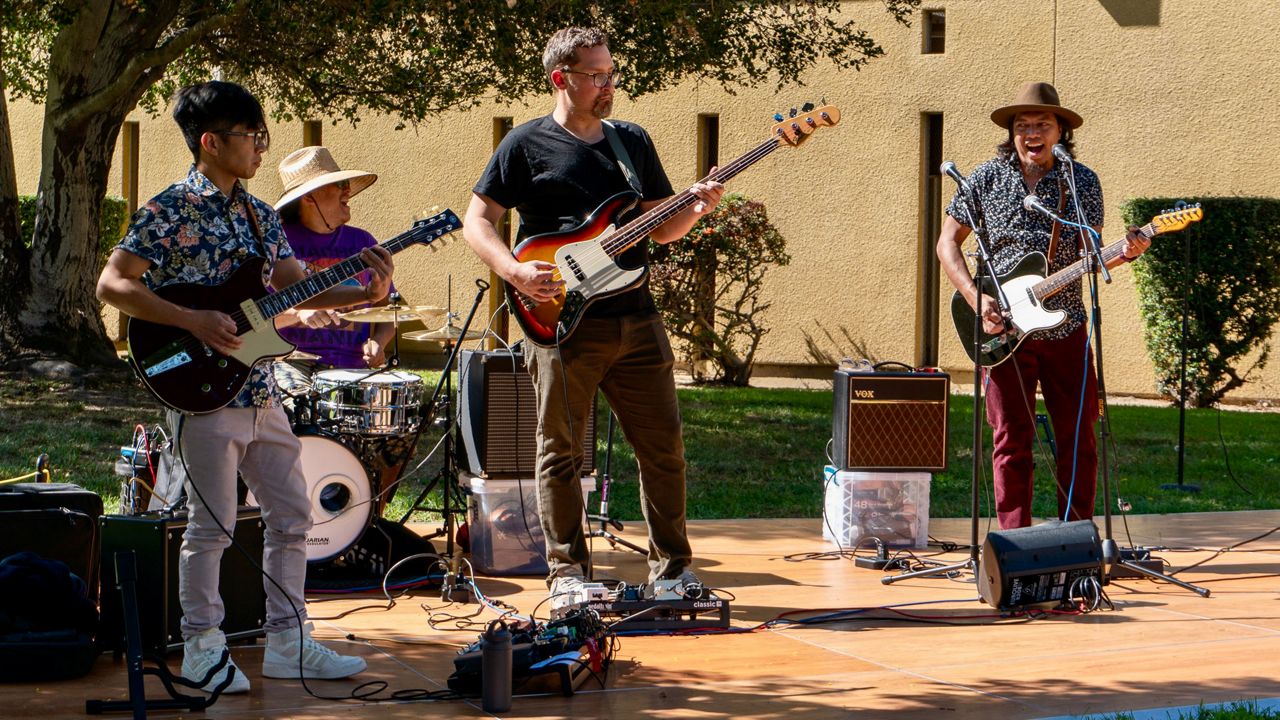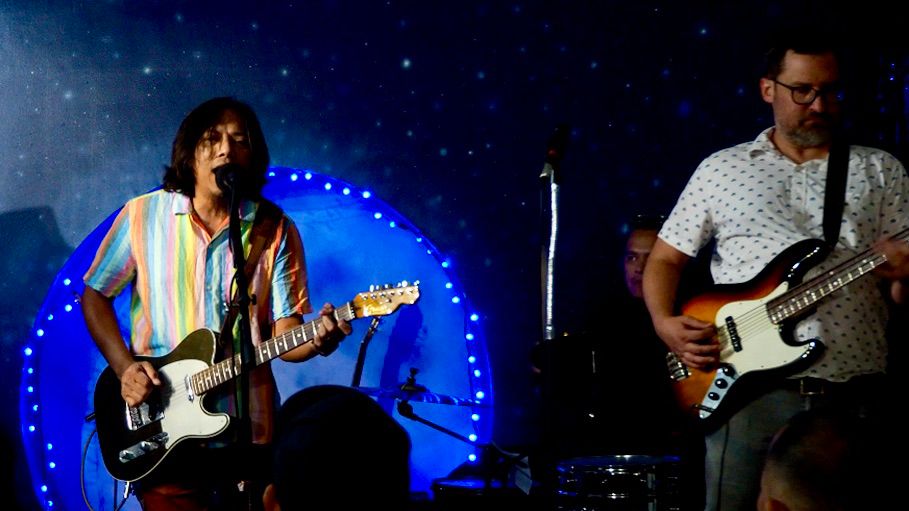LOS ANGELES — Before each show, musician Zosimo Quibilan, Jr. hands each audience member a booklet containing the lyrics of the songs he will be performing.
Quibilan is a Los Angeles-based Filipino-American artist and lead artist of his indie pop rock namesake band ZOS!MO.
With his electric guitar strapped over his shoulder and shoulder-length wavy black hair, he stands on the makeshift stage with his band and begins to sing:
Paano ko ba gagawin
Ang mga bagay na nais ko
Kung wala naman akong lakas
Para isipin pa ito
How can I do the things
That I really want
If I don’t even have the strength
To think about them at all
Outside of the Philippines, hearing a piece of music sung in Tagalog — one of the Southeast Asian country's most commonly spoken languages — is rare.
But here in Los Angeles, it's Quibilan's way to promote his native country's language and culture.
"It's me connecting with my roots and preserving the language," the South Pasadena resident said to Spectrum News.
For the past three months, Quibilan has performed at local LA branch libraries as part of the city's LA Made program. The band is performing on Jan. 22 at Jefferson Park Library and Feb. 8 at Cypress Park Library.
LA Made, which began in 2016, is a cultural program series that aims to educate and inspire individuals through art, music, theater, dance, literature and other areas of the humanities, said Diane Olivo-Posner, principal librarian and associate director of the Exploration and Creativity Department at the Los Angeles Public Library.
"The purpose is to shine a spotlight on the vast collection of artistic talent in Los Angeles and for the citizens of LA to see themselves reflected back when they attend a program at the library," said Olivo-Posner to Spectrum News.
There are more than 200 performers on the LA Made list. Some performers and educators have included actors Danny Trejo and RuPaul, the Linda Lindas band, and ballerina Misty Copeland.
The program is funded by a grant from the National Endowment for the Humanities and matched by the Library Foundation of Los Angeles after the 1986 library fires.
Olivo-Posner said the funds were to replace books and other humanities materials lost or damaged from the fires. In 2016, library officials pivoted and directed interests gained from the endowment to support humanities programming for adults.
LA Made is currently in its eigth season.
She said LA's 72 library branches and the Central Library host two live performance programs annually. Library branch officials select the performers or educators from the list to cater to a specific theme or event held at their libraries. The events are free and the performers are paid.

Although he can sing in English, he said he wanted to do something that would set him apart from other performers.
"Most of the time, when you talk about Filipino Americans in music, they only sing in English and sing covers in English," he said. "If you don't know the artist, it gets drowned out by all of the other singers and musicians that sing in English."
He said in some ways, he's promoting Tagalog, which is not as commonly heard as other Asian languages such as Chinese, Korean or Vietnamese.
On a deeper level, he said, many Filipinos often immigrate to the U.S. and assimilate so well because of their bilingual ability to speak English and Tagalog or another native language that the parents don't pass on their indigenous tongue to their children. In the Philippines, English is one of the country's official national languages. There are more than 120 spoken languages in the country.
"Somehow, it gets lost," he said. "It's my way of reaching out to 1.5 and 2nd generation Filipino Americans, like my kids, who are either actively searching for their roots or even just curious about it, to let them know that yes, we can be proud of our language, culture and heritage."
"I just wanted to do my part in sharing that there's a Filipino language and music scene in LA and across the U.S.," he added.
Vicki Magaw, a senior Mid-Valley Regional Library branch librarian, said she chose ZOS!MO to perform in October at the library as part of Filipino Heritage Month.
She enjoyed Quibilan's lineup of songs and the band's performance.
"You may not know the words or understand it, but the rhythm of the music, the instrument and his voice, people can listen and still enjoy it," said Magaw, who grew up in the Philippines.
She said he was very considerate of the non-Tagalog speakers in the crowd and handed each one a book with the lyrics and English translation to follow along.
He also answered some of their questions about growing up in a developing country.
"The songs that he sang were very reflective of life in the Philippines," she said. "He sang about hardship and cramped living conditions, and towards the end, he sang about not losing hope. Don't give up."
Kailangang bigkasi’t gawin ko na
ang lahat ng makakaya ko ngayon
Ngayong may tinig pa ako
gusto kong sumigaw
I must speak, I must do
All I can while I have time,
While I still have a voice,
I wish to scream
Magaw said Quibilan singing about the daily struggles of life in the Philippines is "very Filipino of him."
"We're known around the world as very musically inclined," she said. "That's how we cope. We sing. We sing about it."



